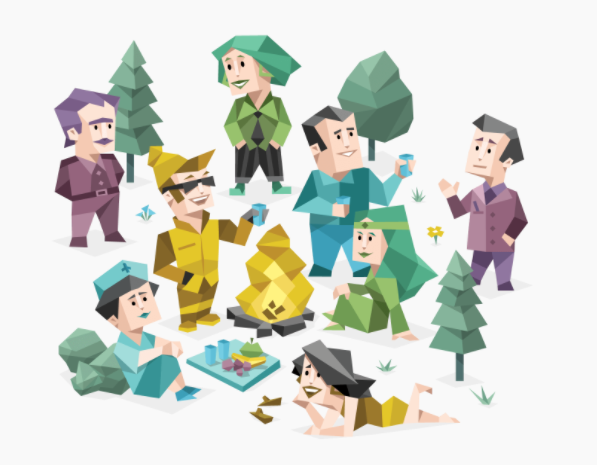An allied health career comprises one of the most diverse and fastest growing sectors in healthcare, offering wide-ranging career choices and job opportunities. Better yet, you can travel across the U.S. to work in refreshing new locations whenever you’d like — how many people get to say that? But, before this ends up sounding like a sales pitch (though I hope you’re at least a little jazzed up) you’ll need to think about your plan for education before your jet-setting career as an allied health professional can leave the runway.
With so many license types (and even more competition) you’ll need to find a perfect blend of job security and passion for your field in order to really make the most of an allied health career. But who actually knows exactly what they want right out of the gate? Here we’ll explore ways you can choose the right education and training to create your future as an allied health professional.

An allied health career can include many different types of medical expertise and are important to healthcare as a whole.
1. Research An Allied Health Career
First off, research is your best friend when it comes to predicting workforce demands. While it’s not the end-all deciding factor, you’ll need to know whether investing in a license and all of that education will even yield a job when the time comes. A good place to start is by checking out the Bureau of Labor Statistics’ overview of healthcare jobs, including their list of the fastest-growing professions.
Spoiler alert: there are a lot in allied health fields!
The next step is browsing jobs in your geographic location (or one you’d like to work in) to see if your ideal placement is even out there. If you’re really just starting to consider a career in allied health, you can get a quick look at just how many types of jobs are out there by seeing what we have here on Allied Travel Careers. Jobs come and go quickly, so don’t feel discouraged if you’re not seeing every single specialty type listed in every state. In the end, you’ll be a sought-after professional so that should be exciting — but on this same note, consider which jobs are showing growth and which are not. The further you can plan ahead the better!
2. Playing Into Personal Attributes
Allied health really does represent a wide spectrum of job types. That means you’ll have to play into your strengths and recognize where you’d have to improve in order to achieve success. For people who really love building progress on a patient-to-patient basis, physical therapy could be a great fit! Meanwhile, those with a knack for highly specialized and precision-driven roles may want to consider working as a catheterization tech or even an X-ray technologist.

Finding out how your personality responds in the workplace can be an interesting starting point for some!
If you’ve never done so before, try taking a personality test like the Myers-Briggs 16 Personalities. As difficult as it may be sometimes, we have to answer to both our strengths and weaknesses when it comes to planning the future — especially when that involves technical training and lots of money spent. In the end, being honest with yourself means others will get the best care and medical experience you can give. Again, job security!
3. Become a Shadow
No, not the archetypal darkness lurking in our human nature and adjoining personalities… I’m talking about getting field experience alongside professionals who work in your future field of expertise! Really, there are few better ways to figure out what you’d like to do professionally than by observing someone work in their natural environment.
Don’t know anyone in the field you’re looking to join? Don’t fret — there are professional associations for just about every specialty out there, it just takes a simple Google search, something like “[your specialty here] professional association” and voila! But finding a professional contact is only half of the process; you’ll need to prepare questions to get the most out their time and your own.
Try asking,
• “What do you like least/best about your job?” or
• “Is there anything you’d change or do differently?” or
• “What did you wish you knew before your allied health career?”
Don’t reinvent the wheel. Learn from those who have succeeded, and more importantly those who have failed!
4. Let the Games Begin!
So now the time has come to select your program, but I’d like to emphasize that you must be VERY selective with how you choose to move forward here. Finding a college or university with an Allied Health Sciences program is just the start of your path to a vibrant career. Beyond developing your broad and basic skill set, you’ll eventually need to consider enrolling in an accredited program for your particular specialty.

Your training will all pay off when you land your first assignment!
With any accredited program, it’s important to see whether the employment rate for graduates is more than 50 percent — anything less is a bet against your favor. You’ll also want to ask what internships, types of career services, and other opportunities for mentorship are available in order to determine whether you’ll have the best results possible.
Sure, this can be a stressful time full of uncertainty, but as long as you do your research, hang on to your enthusiasm, and never settle for “good enough,” you’ll be on the right track! That said, we’ll be here to act as your resource for allied health careers and jobs found throughout the United States. Wherever you decide to go, just remember you didn’t get there without taking that first step!
